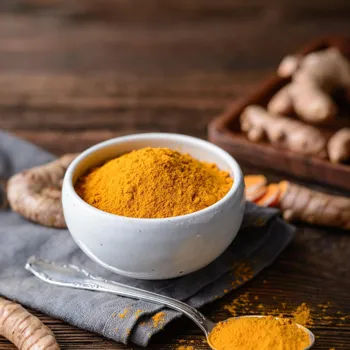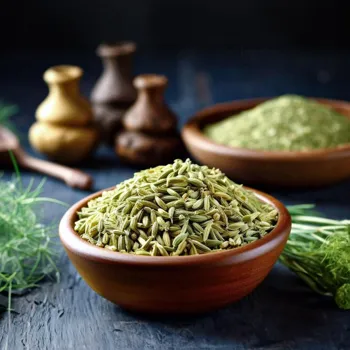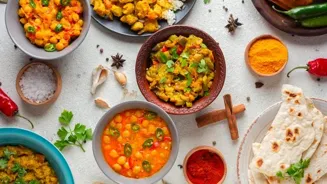Unveiling Ayurveda: Indian Food as Medicine. Discover the ancient wisdom in your kitchen. Dive into how food can heal & balance. Read more
For generations, Indian households have seen the kitchen not just
as a place to cook, but as a personal pharmacy. This isn't some new-age fad; it's the ancient science of Ayurveda woven into the very fabric of Indian cooking.

Ayurveda, meaning "the science of life," views food as medicine, a powerful tool to maintain balance and well-being. It's about understanding how different foods interact with our bodies and using that knowledge to create meals that nourish and heal.
So, let's take a peek into how this ancient wisdom is still relevant in our modern kitchens.
Ayurveda focuses on unique doshas for personalized health
Ayurveda emphasizes that each individual has a unique constitution, or ‘prakriti,’ determined by the balance of three fundamental energies called ‘doshas’: Vata (air and ether), Pitta (fire and water), and Kapha (earth and water).

Understanding your dominant dosha is key to making food choices that support your health. Vata types, often energetic and creative, might benefit from warm, grounding foods. Pitta types, usually driven and sharp-witted, might need cooling, hydrating foods.
Kapha types, generally calm and steady, might thrive on lighter, less heavy foods. This personalized approach distinguishes Ayurveda from generalized dietary advice.
Indian cooking uses Ayurvedic spices for digestion and wellness
Indian cooking is naturally Ayurvedic because it uses lot of spices and herbs that help to digest the food better. Turmeric, ginger, cumin, coriander, and cardamom are the powerhouse of the kitchen. Turmeric, with its anti-inflammatory properties, is a staple in curries and vegetable dishes.
Ginger aids digestion and warms the body, often found in tea and various recipes. Cumin helps stimulate appetite and is used in tempering. Coriander cools the system and adds a fresh flavor. Cardamom is a sweet spice that helps in digestion and sweetens the breath.
The use of these spices is not random; they are carefully selected to balance the doshas and promote overall well-being besides adding flavor.
Ayurvedic cooking strengthens Agni for better digestion
The concept of ‘Agni,’ or digestive fire, is a central tenet of Ayurvedic cooking. Agni is responsible for breaking down food, absorbing nutrients, and eliminating waste. Weak Agni can lead to indigestion, gas, and the accumulation of toxins.

Ayurvedic cooking aims to strengthen Agni through the use of digestive spices, proper food combinations, and mindful eating habits. For instance, drinking warm water with lemon and ginger before a meal can stimulate Agni.
Avoiding incompatible food combinations, like milk with sour fruits, can also prevent digestive problems. Eating in a relaxed environment, chewing food thoroughly, and avoiding overeating are also practices that support healthy digestion.
Diet changes align with seasons boost health
Simple changes in diet can make a surprisingly noticeable positive change. Seasonal eating is also a key aspect of Ayurvedic cooking. Eating fresh, locally available produce that is in season ensures that you consume foods with the energy that aligns with the climate.
For example, cooling fruits and vegetables like cucumbers and watermelons are preferred during summer, while warming foods like root vegetables and nuts are more beneficial during winter. This practice helps the body adapt to the changing environment and strengthens its natural defenses.
Incorporate Ayurveda in your kitchen for holistic well-being
Incorporating Ayurveda in your kitchen is not about strictly following complex rules. It’s about understanding the principles of Ayurveda and experimenting with them to create meals that nourish your body and mind.
It’s about listening to your body, paying attention to how different foods make you feel, and making choices that support your overall well-being. Start with small changes, like adding more spices to your dishes, paying attention to your digestion, and eating seasonally.
Over time, you’ll develop a deeper understanding of how food can be used as medicine to promote a healthier and more balanced life. The ancient wisdom of Ayurveda is not lost; it is waiting to be rediscovered in your kitchen.
AI Generated Content. Glance/InMobi shall have no liability for the content












